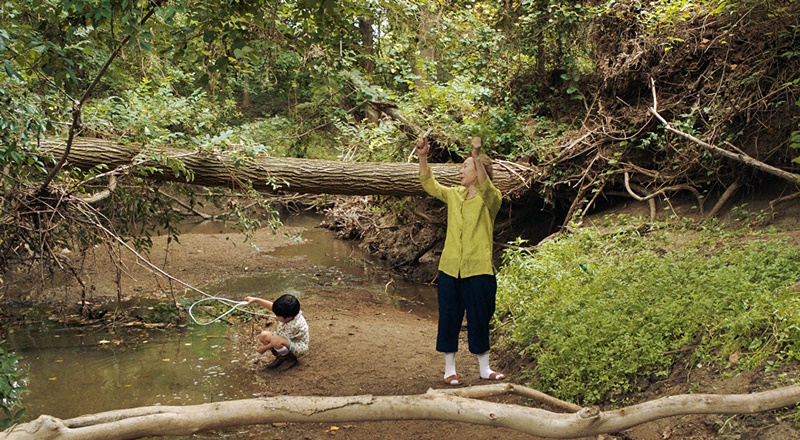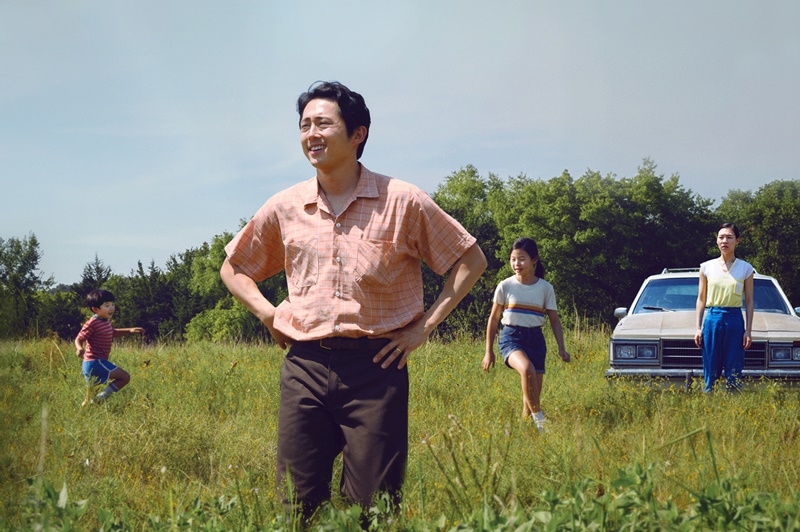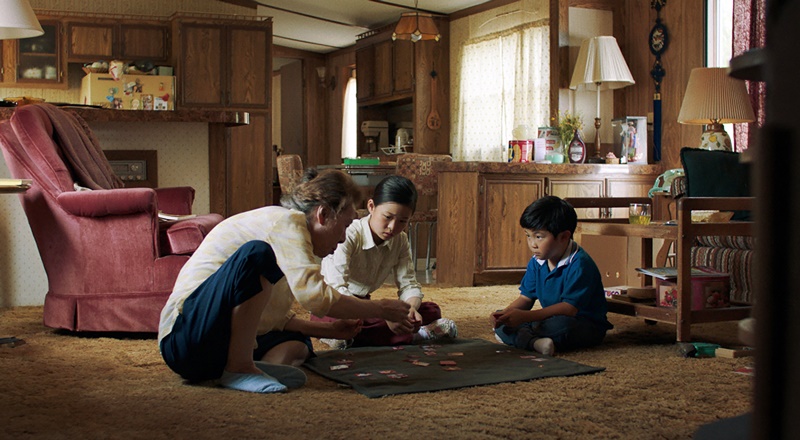
"Minari" tells the story of a Korean immigrant family in 1980s Arkansas finding their place in America. Pictured is the grandmother Soon-ja (right) shouting "Minari, wonderful!" in a scene from the film. (Pan Cinema)
By Lee Kyoung Mi and Lee Hana
Photos = Pan Cinema
Seoul | Feb. 18, 2021
Korean American Jacob and his family move to rural Arkansas, where he hopes to start a farm on a plot of land he bought. He is determined to show his family that his plan will come to fruition. His wife Monica is initially disappointed after seeing the desolate land but comes to her senses while looking for a job.
Monica's mother Soon-ja travels from Korea to the U.S. to help with the kids, Anne and David. The grandmother brings a suitcase filled with gochugaru (red pepper flakes), dried anchovies, traditional medicine for the youngest child David, who has a heart condition, and minari (water parsley) seeds.
The indie film "Minari" tells the story of a Korean immigrant family in the 1980s finding their place in America, a place of a new beginning and hope. The plot is based on the real-life experience of director Lee Isaac Chung, who was born in 1978 in Denver, Colorado, and spent his childhood on a farm in rural Arkansas.

Jacob (Steven Yeun) and his family arrive in rural Arkansas for the first time. His wife Monica looks worried while the kids run around and play. (Pan Cinema)
This family takes root in a foreign country in the same way that a minari plant flourishes wherever planted.
Soon-ja's words "Minari, minari, wonderful minari!" resonate throughout the film as its central theme. "Minari grows well everywhere like weeds so anyone can pick and eat it. Rich or poor, anyone can pick and eat it as medicine, too," she says.
As of Feb. 18, the movie has received 153 award nominations from film festivals and organizations in the U.S., winning 68. It is also considered a strong contender for this year's Academy Awards slated for April.
"Minari" makes its Korea premiere on March 3.

Soon-ja (left), who moves to the U.S. from Korea to help look after her grandchildren, is a bit different from other grandmothers. The minari she plants symbolizes the strength of life depicted in the film. (Pan Cinema)
km137426@korea.kr